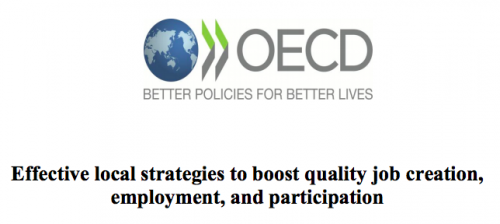In their September 2013 declaration, G20 leaders agreed that creating more and better quality jobs should be at the heart of government policies in the recovery, not only to create growth, but to reduce poverty and increase social cohesion.
G20 leaders also agreed on the importance of better integrating and coordinating policies to restore public confidence in the global economy. These concerns remain today as the global economy continues to recover at a moderate pace (OECD 2013a). Growth prospects are strongest in the emerging economies; however they are weaker than past projections. There is also a worrisome slowdown in world trade growth, in foreign direct investment flows and in fixed investment.
Unemployment remains stubbornly high, particularly in Europe. At the same time, those who are in work are increasingly at risk of low incomes, job instability and poor career prospects (OECD 2013b). In emerging economies, informal employment remains an important issue, with many people working long hours for low pay with limited social protection. Certain groups of people have been more affected than others by the crisis, including youth, women, low-skilled people, single parents, people with disabilities, and older workers.
Job creation can be stimulated through a stable macroeconomic framework, but also structural policies which encourage innovation, skills, and business development. In order for new jobs to be created, businesses need access to skilled people, to business networks, to finance, and to space to start up and expand. Central governments manage a range of policies whose impact can reinforce each other and contribute to fulfilling economic potential, business expansion and social cohesion at the local level. Where national policies are sufficiently flexible and adjustable, local level actors can develop integrated approaches to growth, maximising employment opportunities, and helping to tackle inequalities and social exclusion in their communities.
TABLE OF CONTENTS
- Rationale in the context of the G20
- Removing obstacles to new jobs growth
- As barriers to employment become more complex, a horizontal approach is often needed
- Effectively targeting investment and supporting new sources of growth
- Principles for effective action at the national and local levels
- References
Download Effective local strategies to boost quality job creation, employment, and participation
This note was produced by the OECD (LEED Programme, in collaboration with the Directorate for Employment, Labour and Social Affairs) with inputs from the International Labour Organisation (ILO), the World Bank, and the World Association of Public Employment Services (WAPES). An earlier version of this report was reviewed by the G20 Taskforce of Employment in Sydney on 5-6 February 2014. This version incorporates all comments received from G20 countries. The Local Economic and Employment Development Programme is a division of the OECD focusing on the implementation and cross-cutting aspects of employment, skills and economic development policies. Its mission is to contribute to the creation of more and better quality jobs through more effective policy implementation, innovative practices, stronger capacities and integrated strategies at the local level.





